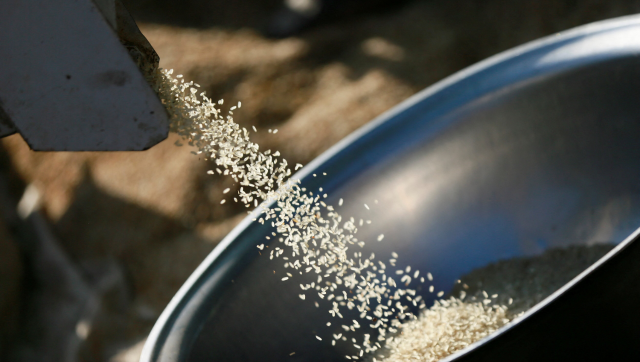As the financial strain tightens its grip, many residents in northern Nigeria are turning to unconventional rice grains, known as afafata in the local Hausa language, which were previously discarded or used as fish feed due to their hardness. Isah Hamisu, a rice mill worker in Kano, highlighted the shift while speaking to the BBC, noting that despite the challenges in cooking and consuming afafata, its affordability has made it a viable option for families struggling to afford staple foods. The economic hardships, compounded by global factors and governmental policy changes such as the cancellation of fuel subsidies and currency devaluation, have resulted in soaring inflation rates, making basic commodities like rice increasingly unaffordable. The skyrocketing price of rice, a dietary staple, has led to protests in various states, with citizens expressing their frustration over the escalating cost of living. In response to the crisis, some Nigerians have resorted to consuming afafata, which is more budget-friendly compared to standard rice varieties. Hajiya Rabi Isah emphasized that without afafata, feeding her family would be a daunting task, given the exorbitant prices of regular rice. Market vendors have observed a surge in demand for afafata, as consumers seek cost-effective alternatives, despite its inferior taste and the laborious process of cleaning the grains before cooking. While the government has initiated measures to alleviate the situation, including distributing grains to mitigate inflation’s impact, concerns persist over the adequacy of these interventions. President Bola Tinubu’s administration faces criticism for its handling of the crisis, particularly regarding the availability and affordability of rice. Despite lifting import restrictions, challenges such as foreign currency shortages and currency devaluation continue to hinder efforts to stabilize rice prices. The rice price surge underscores longstanding challenges in Nigeria’s agricultural sector, despite previous initiatives to promote local production and reduce dependence on imports. As Nigerians grapple with the relentless rise in living costs, the resilience of families like Hajiya Rabi Isah’s in embracing unconventional food sources reflects the harsh realities of economic hardship gripping the nation.
Isah Hamisu, a rice mill worker in Kano, highlighted the shift while speaking to the BBC, noting that despite the challenges in cooking and consuming afafata, its affordability has made it a viable option for families struggling to afford staple foods
Advertisement
End of Article


)

)
)
)
)
)
)
)
)



